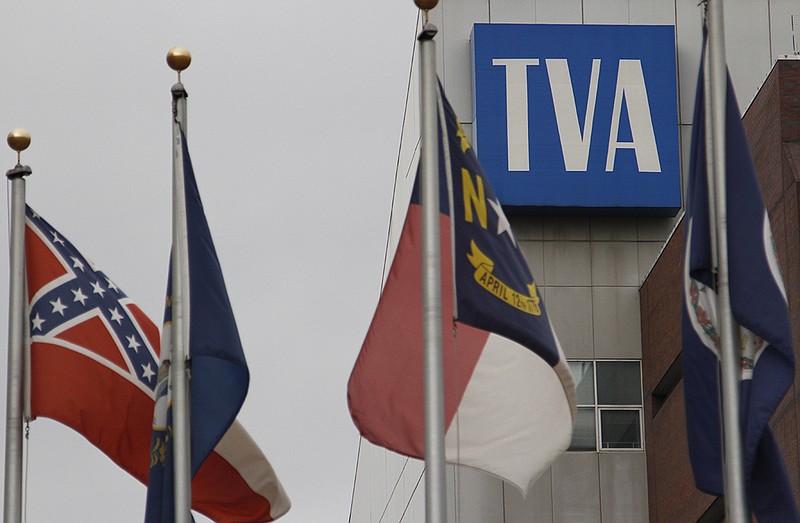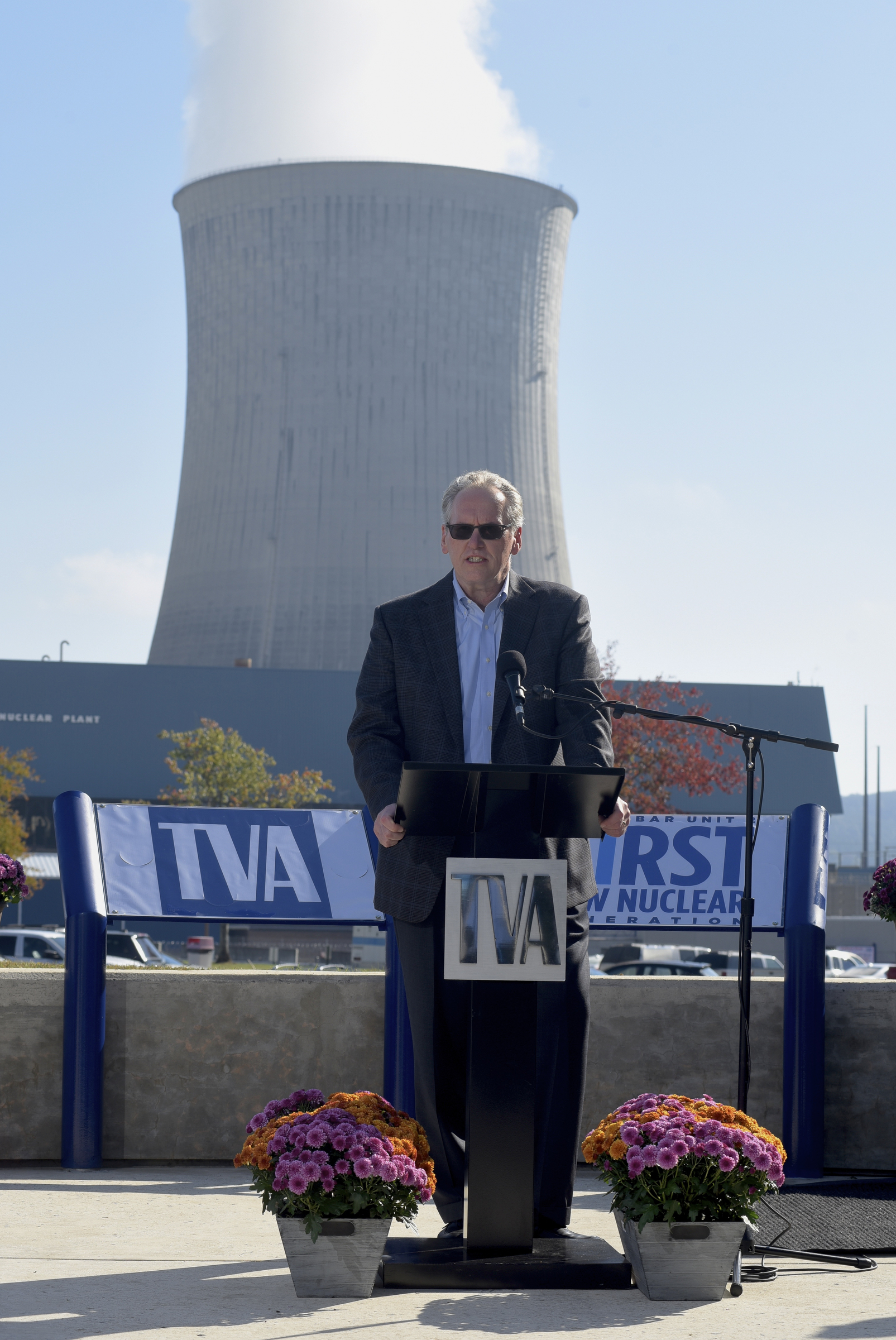Come October, your electric bill will go up - and not just because you turn on the heat or use lights longer because the days have grown shorter.
The average Chattanooga household will pay nearly $2 more a month for electricity to help TVA absorb the costs of bringing its newest nuclear reactor - Watts Bar Unit 2 in Rhea County near Spring City, Tenn. - into the rate base.
It's important to note that you'll be paying more even though TVA has over recent years steadily streamlined its operating budget. That budget for fiscal 2017 is $10.4 billion, down from $10.7 billion for fiscal 2015 and $11.1 billion in 2014.
To achieve the lower operating budget, TVA has steadily cut workers. In the past three years, the utility has cut its staff by 15 percent, eliminating 1,825 jobs from its payroll. TVA's current staff of 10,792 is the lowest since 1934, just a year after TVA was established as part of Franklin Roosevelt's New Deal.
TVA also has said it is using cheaper fuels, and in July the ratepayer funded federal utility announced it is offering another 3,500 employees in its nuclear unit incentives to voluntarily quit or retire early - all in order to meet the new lower 2017 fiscal budget.
To recap: Our electricity will cost more to fund a lower budget, fewer workers and cheaper fuel.
Why? Because nuclear power is so expensive to build that it is no longer - if it ever was - the cheapest way to make electricity. (And theoretically we here in the Tennessee Valley got a good deal on our new reactor.)
Even with the cost overruns and delays in completing Watts Bar Unit 2, our $4.7 billion reactor construction cost was far less than the $14 billion expense of building new reactors from the ground up at Plant Vogtle in Georgia or at V.C. Summer nuclear plant in South Carolina. That's because Watts Bar 2 was first started 43 years ago and stalled when it was 80 percent complete in the 1980s due in part to a projected decrease in power demand. Watts Bar 2's completion, first estimated to cost $2.5 billion, finally came in at almost twice that amount and about four years late.
But for all the barbs, nuclear power is going to be a critical tool if we're going to meet carbon reduction demands made necessary by climate change. Just don't let anyone tell you that it is either clean or cheap.
There is no appropriate, safe storage yet for nuclear waste. And because of nuclear power's twitchiness and obvious safety issues, it's clearly not a bargain, either.
We need to be pushing TVA to make aggressive moves toward embracing solar and wind power - particularly in helping consumers - both homes and businesses - build and install their own. Instead, TVA has cut short its incentives for home and business solar buyback plans.
On the plus side, the utility has begun to buy more solar and wind power. TVA says it already gets 13 percent of its power from hydro, wind and solar and expects to buy more.
But we can't criticize TVA for our own power consumption. The cheapest power is the power we don't use.
That makes energy efficiency our best investment. And TVA's.

